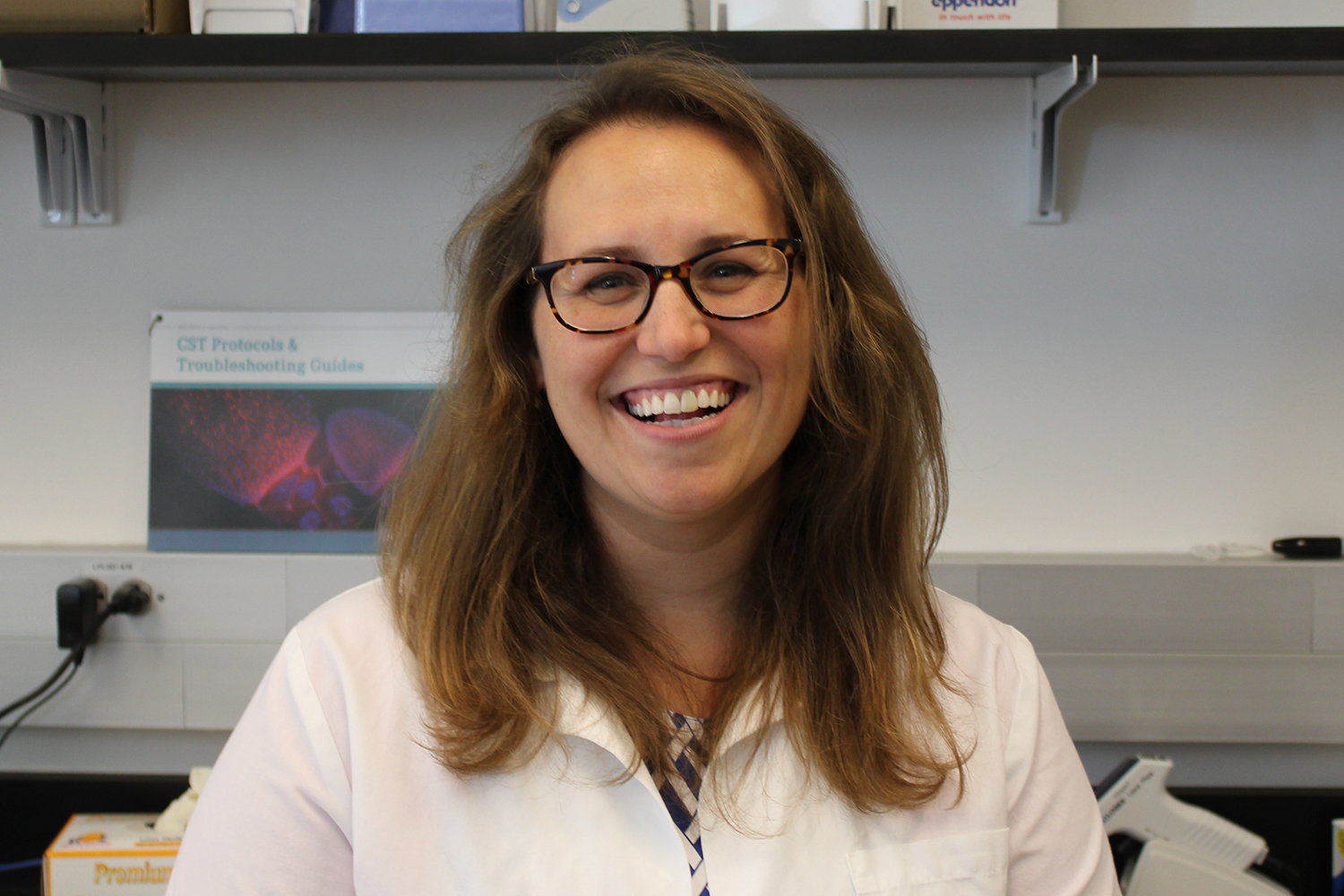Alison Kohan, assistant professor in the Department of Nutritional Sciences, has a way of making biochemistry sound exciting. She joined the College in August 2014 after completing her postdoctoral work and a year as a research assistant professor at the University of Cincinnati. There she worked with her mentor, Patrick Tso, professor and director of the Mouse Metabolic Phenotype Center , focusing on the role of apolipoprotein A-IV in lipid metabolism and glucose regulation.
Kohan’s current research focuses on the molecular processes of intestinal lipoproteins, which are essential for lipid absorption and metabolism. Kohan is researching the role of apolipoprotein C-III (apoC-III) in dietary fat absorption and how it affects the development of cardiovascular disease. In particular, she is interested in how changes in the amount of intestinal apoC-III might be beneficial.
With a five-year $775,000 grant from the NIH National Institute of Diabetes and Digestive Kidney Diseases, Kohan is studying this using transgenic mice that express a human form of apoC-III.
ApoC-III is a protein that comes from the intestine and liver and circulates in blood plasma to inhibit the removal of fat from the blood, which can raise triglyceride levels. Because of this, apoC-III is known to be a strong, independent risk factor for cardiovascular disease. Recent studies have also linked elevated apoC-III levels in the liver with a higher risk for developing cardiovascular disease.



